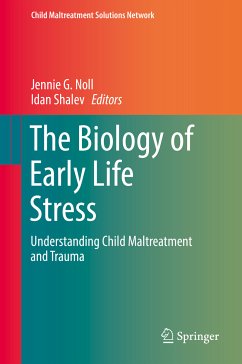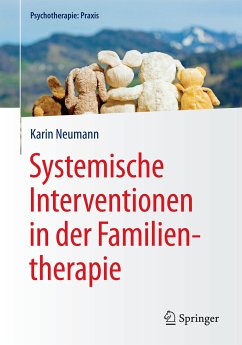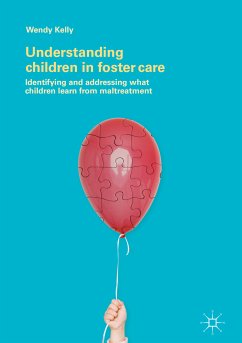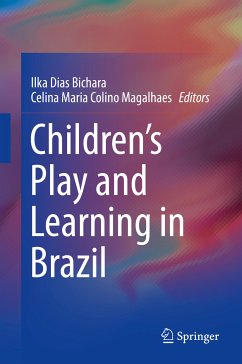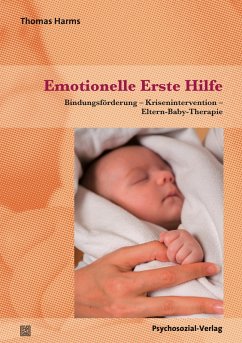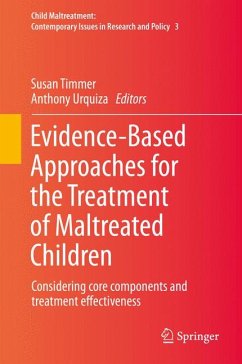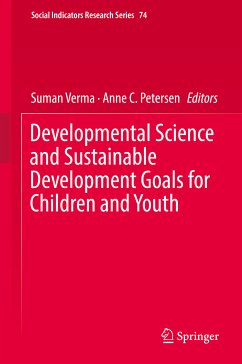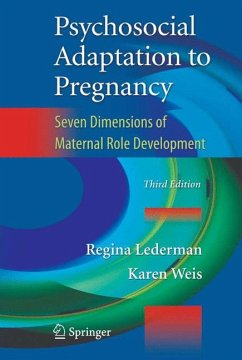
Vulnerable Children and Youth in Brazil (eBook, PDF)
Innovative Approaches from the Psychology of Social Development
Redaktion: Dell'Aglio, Débora Dalbosco; Koller, Silvia Helena
Versandkostenfrei!
Sofort per Download lieferbar
72,95 €
inkl. MwSt.
Weitere Ausgaben:

PAYBACK Punkte
36 °P sammeln!
This book presents the results of researches conducted with children and youth at risk for over 20 years in Brazil. It addresses a series of topics related to children and youth living in poverty or in situations of social vulnerability, such as family, sexual and dating violence; adolescent mothers and mothers who put their children for adoption; children and youth living in foster and institutional care; and adolescents involved in drug trafficking or incarcerated in juvenile detention centers. Building upon the Bioecological Theory of Human Development, this volume emphasizes the innovative...
This book presents the results of researches conducted with children and youth at risk for over 20 years in Brazil. It addresses a series of topics related to children and youth living in poverty or in situations of social vulnerability, such as family, sexual and dating violence; adolescent mothers and mothers who put their children for adoption; children and youth living in foster and institutional care; and adolescents involved in drug trafficking or incarcerated in juvenile detention centers.
Building upon the Bioecological Theory of Human Development, this volume emphasizes the innovative knowledge about psychosocial development of vulnerable children and youth produced in Brazil and aims to present theoretical and methodological approaches developed especially for the countries of the Global South, in an attempt to overcome the scientific divide between the North and South. Northern research agenda defines as global the theories, methodologies, and application of knowledge on social policies and interventions. However, the contexts, histories, and cultural processes are essential for producing and applying research knowledge according to specific regional characteristics, organizations, and conditions. Human development is related to contextual features and cannot be directly imported from one place to another.
Departing from these original theoretical and methodological approaches, the book also presents the results of evidence-based interventions, showing its effectiveness in specific contexts. All of this makes Vulnerable Children and Youth in Brazil - Innovative Approaches from the Psychology of Social Development a valuable tool for psychologists, educators, social scientists and public health professionals studying or working with children and youth at risk in different parts of the world, contributing to the understanding of human development in cultural context.
Building upon the Bioecological Theory of Human Development, this volume emphasizes the innovative knowledge about psychosocial development of vulnerable children and youth produced in Brazil and aims to present theoretical and methodological approaches developed especially for the countries of the Global South, in an attempt to overcome the scientific divide between the North and South. Northern research agenda defines as global the theories, methodologies, and application of knowledge on social policies and interventions. However, the contexts, histories, and cultural processes are essential for producing and applying research knowledge according to specific regional characteristics, organizations, and conditions. Human development is related to contextual features and cannot be directly imported from one place to another.
Departing from these original theoretical and methodological approaches, the book also presents the results of evidence-based interventions, showing its effectiveness in specific contexts. All of this makes Vulnerable Children and Youth in Brazil - Innovative Approaches from the Psychology of Social Development a valuable tool for psychologists, educators, social scientists and public health professionals studying or working with children and youth at risk in different parts of the world, contributing to the understanding of human development in cultural context.
Dieser Download kann aus rechtlichen Gründen nur mit Rechnungsadresse in A, B, BG, CY, CZ, D, DK, EW, E, FIN, F, GR, HR, H, IRL, I, LT, L, LR, M, NL, PL, P, R, S, SLO, SK ausgeliefert werden.



